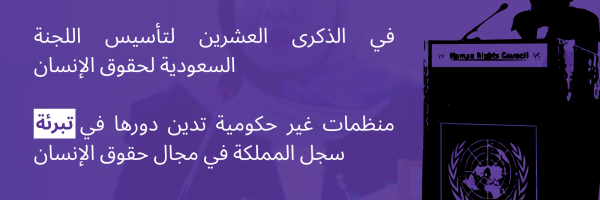A cross-party group of 10 UK parliamentarians has written to Foreign Secretary David Lammy urging the UK government to use all available diplomatic tools to address the cases of Saudi sisters Manahel and Maryam al-Otaibi, along with other women facing arbitrary imprisonment and travel bans in Saudi Arabia.
The letter, drafted with assistance from ALQST, presents the sisters’ cases as emblematic of the contradictions in the official narrative of women’s empowerment in Saudi Arabia. Their plight highlights the continuing repression of women’s rights advocates in the country despite a number of recent reforms.
Manahel al-Otaibi, a 30-year-old fitness instructor, was sentenced to 11 years in prison for online posts promoting women’s rights and showing herself not wearing an abaya – freedoms she believed were protected by reforms announced by Crown Prince Mohammed bin Salman. In prison she has suffered repeated violations including physical abuse from guards and fellow inmates, denial of healthcare, and prolonged periods of enforced disappearance, the most recent lasting from December 2024 to April 2025. Her sister Maryam al-Otaibi remains subject to an unofficial and arbitrary travel ban as a result of her past activism, while a third sister, Fouz al-Otaibi, is currently seeking asylum in the UK after facing similar charges to Manahel.
During a recent phone call from prison Manahel informed her family that she had received death threats from another inmate if Fouz continued her activism abroad. Fouz, named in a BBC list of 100 inspiring and influential women, has been a vocal advocate for her sisters.
The parliamentarians’ letter notes the recent spate of prisoner releases in Saudi Arabia, including that of University of Leeds doctoral student Salma al-Shahab, following sustained advocacy efforts. It stresses, however, that many released prisoners of conscience continue to face punitive restrictions including travel bans. The letter also emphasises that numerous individuals – including women like Manal al-Gafiri (sentenced to 18 years), and Nourah al-Qahtani (35 years) – remain arbitrarily imprisoned for exercising their fundamental rights. A third and fourth woman referenced in the letter, Fatima al-Shawarb and Sukaynah al-Aithan, have since been released from prison part-way through 30-year and 40-year sentences respectively.
Finally, the signatories call on the UK government, as a close ally of Saudi Arabia, to use its diplomatic leverage to press for Manahel’s immediate release, the lifting of Maryam’s travel ban, and the release of other women detained or facing similar restrictions for exercising their basic freedoms.




